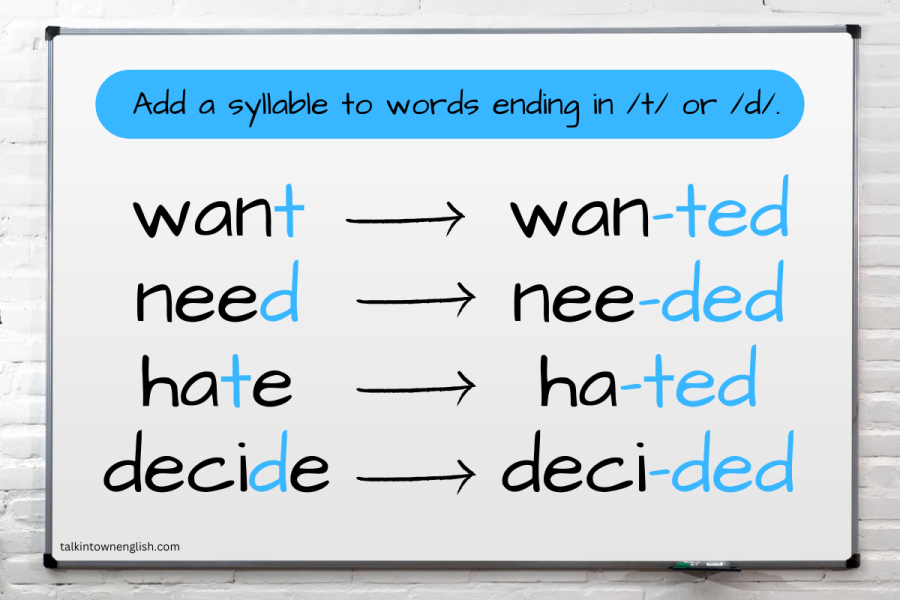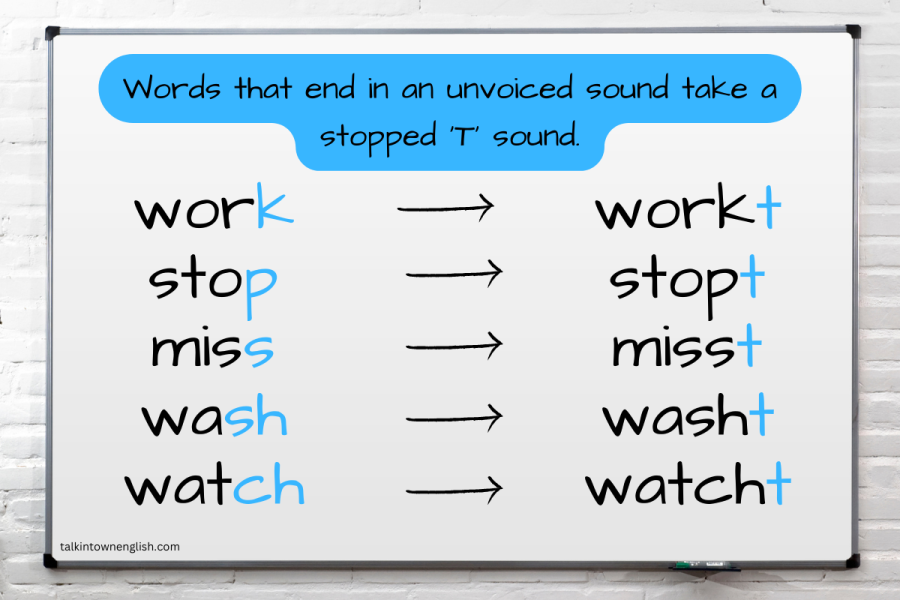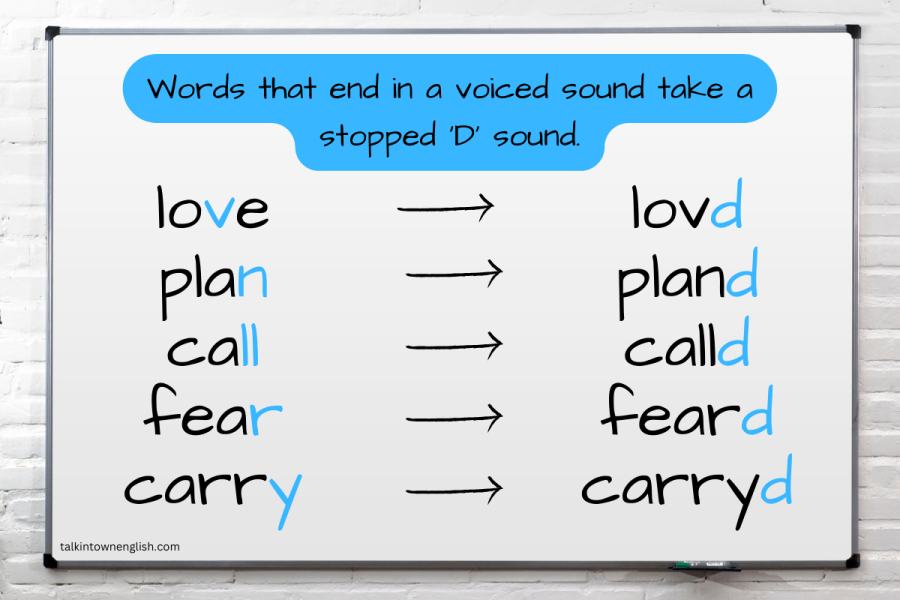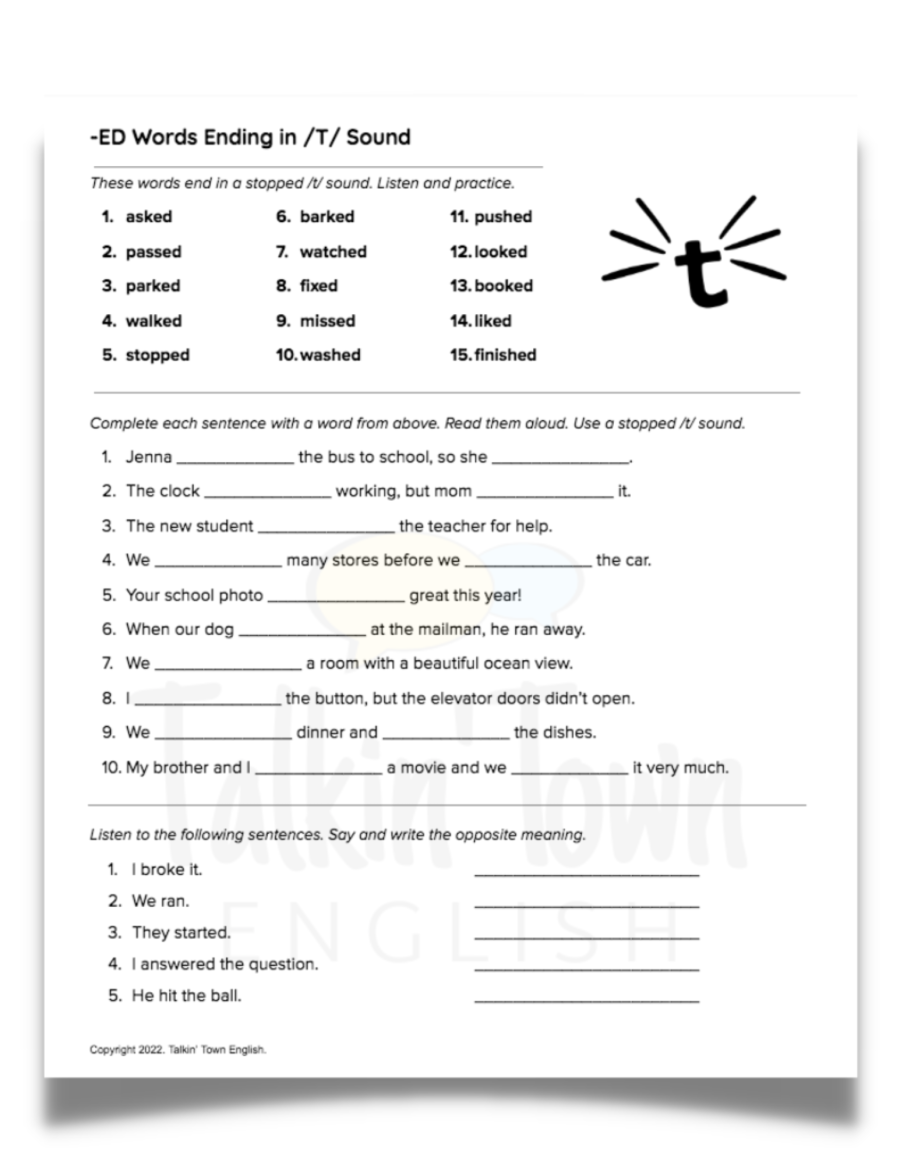Alternate Endings
The pronunciation of words ending in -ed in English can be really confusing.
For every -ed word, there are three alternative ending sounds to choose from:
- Add an extra syllable /-ed/
- Make a stopped sound /t/
- Make a stopped sound /d/
Alternate endings might be great for TV series, but alternate pronunciation in English? Not so much.
Look at the words rated and raked, for example. They are the same word (except for one letter) but are pronounced very differently.
The word rated has two syllables: (Ray-TID).
The word raked only has one syllable (RAYKT).
As you can hear, the word raked ends in a stopped /t/ sound, while the word rated has an extra syllable /-ed/.
Why? Because English.
So let’s forget about why. Instead, let’s talk about when and how— because when you know how to produce stopped sounds, your English pronunciation (and listening) will improve a lot!
Here’s everything you need to know about when and how to pronounce -ed words in English.
When To Add an Extra Syllable (-ed)
When a root word ends in a /t/ or /d/ sound, add an extra syllable /-ed/.

The silent e on words like ‘hate’ and ‘decide’ does not affect the pronunciation rule. Add and speak the extra syllable -ed, which is pronounced as a soft /Id/ sound.
This looks pretty simple so far. But be careful. There are very few words that take an extra syllable /-ed/. Most words end in a short /t/ or /d/ sound, so let’s look at how to pronounce those.
Words Ending in Stopped Sounds (t or d)
Question: Does the word stopped have one or two syllables?
If you answered one, you’re right! Stopped is actually pronounced STOPT, not STOPP-ED.
One syllable, one ending: /t/.
Words that end in an unvoiced sound have a stopped /t/ sound.

Unvoiced sounds include {f, k, p, s, sh, ch, th, and x}.
Listen to how the words above are pronounced. Copy the audio.
Now practice again with words ending in the /d/ sound.
Words that end in a voiced sound have a stopped /d/ sound.

Voiced sounds include {b, j, g, l, m, n, r, v, z, and all vowels}.
Listen to how the words above are pronounced. Copy the audio.
How To Pronounce Stopped Words Like a Native Speaker
Making stopped sounds /t/ and /d/ takes some getting used to. As with most things, practice makes perfect!
I use the following trick to teach my students how to do it in three easy steps:
- Touch your first finger to your thumb and say the root word, for example: stop.
- Then, flick your finger as you release a /t/ sound by touching your tongue to the roof of your mouth above your teeth.
- Repeat this 4-5 times until you can do it faster. Then you will have correctly pronounced the word stopped! Try it again with the /d/ sound below.


With time and practice, you will be able to pronounce any word ending in -ed correctly. Try reading more stopped sounds below. Flick your finger for the /t/ and /d/ sounds.
Common Words with Stopped /t/ Sounds
asked
locked
cooked
liked
looked
picked
walked
checked
hiked
talked
stopped
flipped
tapped
dipped
stamped
wrapped
chopped
slipped
trapped
shopped
watched
matched
pitched
punched
reached
touched
searched
patched
stitched
latched
washed
pushed
brushed
wished
crushed
flushed
stashed
crashed
rushed
trashed
passed
missed
kissed
danced
guessed
erased
faced
spiced
pressed
dressed
fixed
mixed
waxed
taxed
boxed
relaxed
puffed
laughed
stuffed
bluffed
Common Words with Stopped /d/ Sounds
robbed
climbed
called
smelled
boiled
peeled
smiled
rolled
fooled
spelled
encouraged
judged
aged
tried
blamed
alarmed
dreamed
climbed
turned
returned
shared
bored
prepared
tired
scared
cleaned
banned
burned
ruined
rained
lived
loved
arrived
carved
waved
saved
believed
raised
advised
closed
used
argued
played
cried
tried
glued
replied
denied
applied
supplied
Want more classroom practice? You can download the practice worksheets here.
Ready to take the quiz? Check your progress HERE



gralion torile
This is the right blog for anyone who wants to find out about this topic. You realize so much its almost hard to argue with you (not that I actually would want…HaHa). You definitely put a new spin on a topic thats been written about for years. Great stuff, just great!